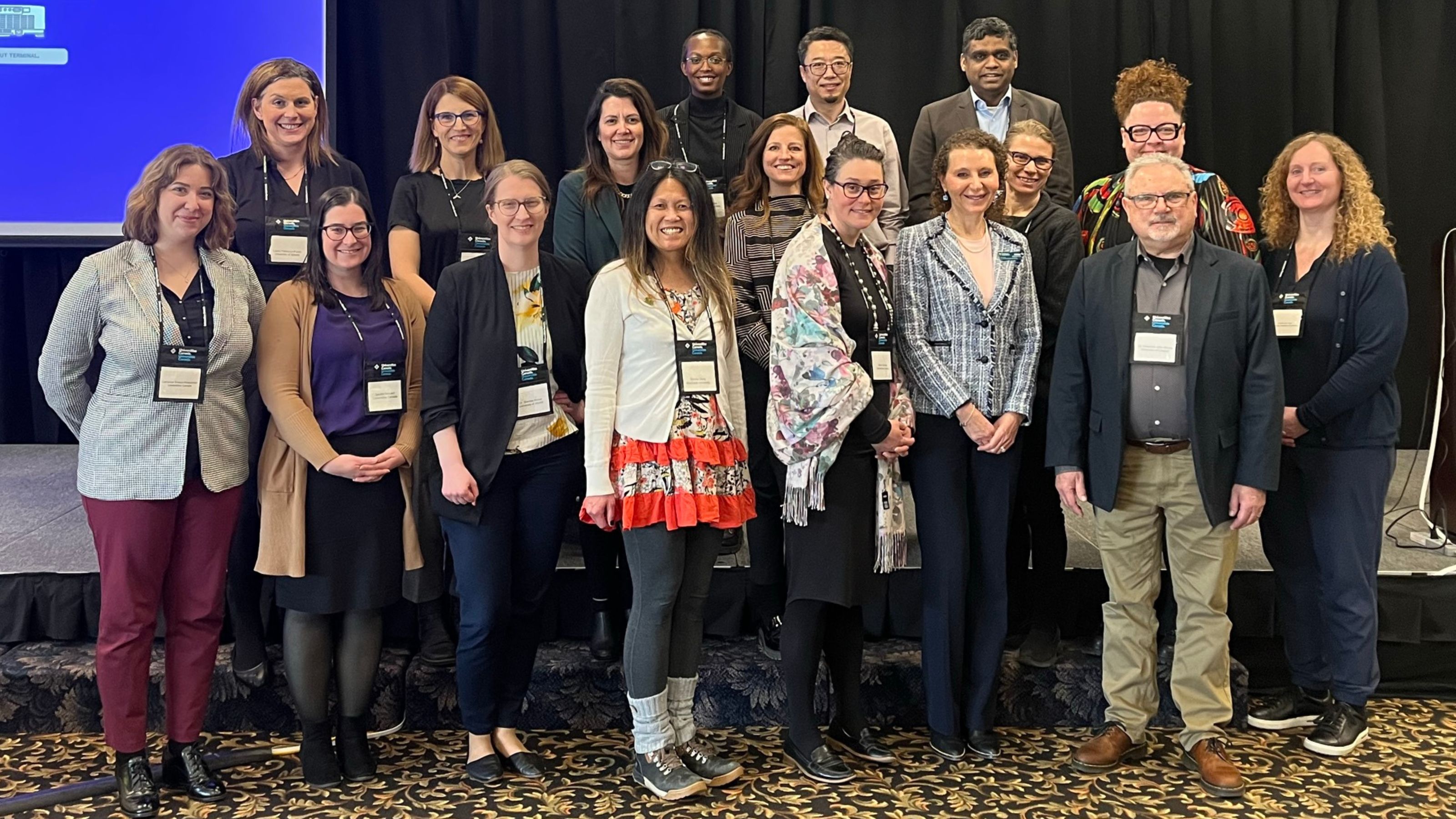Canadian academic institutions have come together in a landmark effort to collaboratively develop net-zero energy solutions, opportunities and actions in support of a low-carbon economy, climate adaptation and resilience.
The Canada’s universities: Action for net zero initiative, organized by Universities Canada, aims to marshal the collective efforts of its member institutions to effectively mitigate and address climate change and its impacts. In late March, as part of the initiative, the prairies region institutions—co-led by the University of Alberta—assembled a diverse group of participants from academia, industry and government to foster dialogue, share insights and drive collaborative efforts towards a sustainable future.
Innovative research presentations from researchers across the prairie institutions (University of Alberta, Concordia University of Edmonton, University of Manitoba, University of Saskatchewan, University of Calgary) showcased the multifaceted approach universities are taking towards climate change mitigation and adaptation. From addressing the social and economic dimensions of climate action to developing scalable carbon capture technologies, the research underscored the importance of interdisciplinary work and the potential for universities to drive significant advancements in climate solutions.
A panel discussion featuring representatives from the University of Alberta, University of Lethbridge, Alberta Innovates, and Environment and Climate Change Canada delved into the complexities of collaborative climate research and the essential supports needed to foster such endeavours. The discussions emphasized the multidisciplinary nature of climate change challenges, the critical role of post-secondary institutions in advancing new technologies and the importance of aligning the pace and priorities of academic, government and industry partners.
"The University of Alberta is a world leader in developing net-zero energy solutions and driving transformative change to create a sustainable future. Through our commitment to large-scale, multidisciplinary research initiatives, such as Action for Net Zero, we harness the collective power of diverse expertise to address the pressing challenges of our time,” says Bill Flanagan, president and vice-chancellor.
“In Shape we set a goal to increase our research impact by tackling research initiatives that address major social, economic and environmental challenges. The Action for Net Zero initiative is one of the many projects we’re working on that helps us achieve this goal.”
Innovative Research and Solutions
The series of Universities Canada regional climate workshops serve as vibrant platforms for showcasing current research projects and initiatives, focusing on developing sustainable technologies and operational solutions for climate change mitigation and adaptation. These diverse conversations have covered the physical science of climate change, its socio-economic impacts, health ramifications, energy for the common good and strategies for limiting greenhouse gas emissions. Action for Net Zero underscores both the critical role of academic research in addressing the climate crisis and the important position of the U of A – and other universities across Canada – as a catalyst to bring together industry, government and communities.
“Through Shape and Forward with Purpose, we have reaffirmed our commitment to bringing our world-class expertise to bear on the most pressing challenges of our time. Our collaboration with Universities Canada is just one example of how the U of A is working toward a low-carbon economy,” says Aminah Robinson Fayek, vice-president (Research and Innovation).
Critical Discussions on Collaboration and Funding
Academic, government, industry and community partners all play a key role in delving into the challenges, opportunities and next steps for climate change research. The University of Alberta recognizes the value of bringing together different perspectives. Working with industry, government and communities is central to the development of innovations and solutions needed to address climate change. The realization of their full potential in this domain hinges, however, on robust provincial and federal support, secure and sustainable funding and strong strategic partnerships with industry.
Action Areas for Achieving Net Zero
Universities Canada outlined six action areas pivotal for achieving net zero emissions including:
- measuring and reporting greenhouse gas emissions;
- pursuing increased investment;
- fostering cross-sector collaboration;
- raising awareness;
- sharing resources and best practices;
- addressing Universities Canada’s own impact on climate change.
These actions accentuate the comprehensive approach needed to address the multifaceted challenges of climate change. The emphasis on collaboration, both within the academic community and with external partners in government, industry and the community, stands out as a critical pathway towards holistic and impactful climate action.
